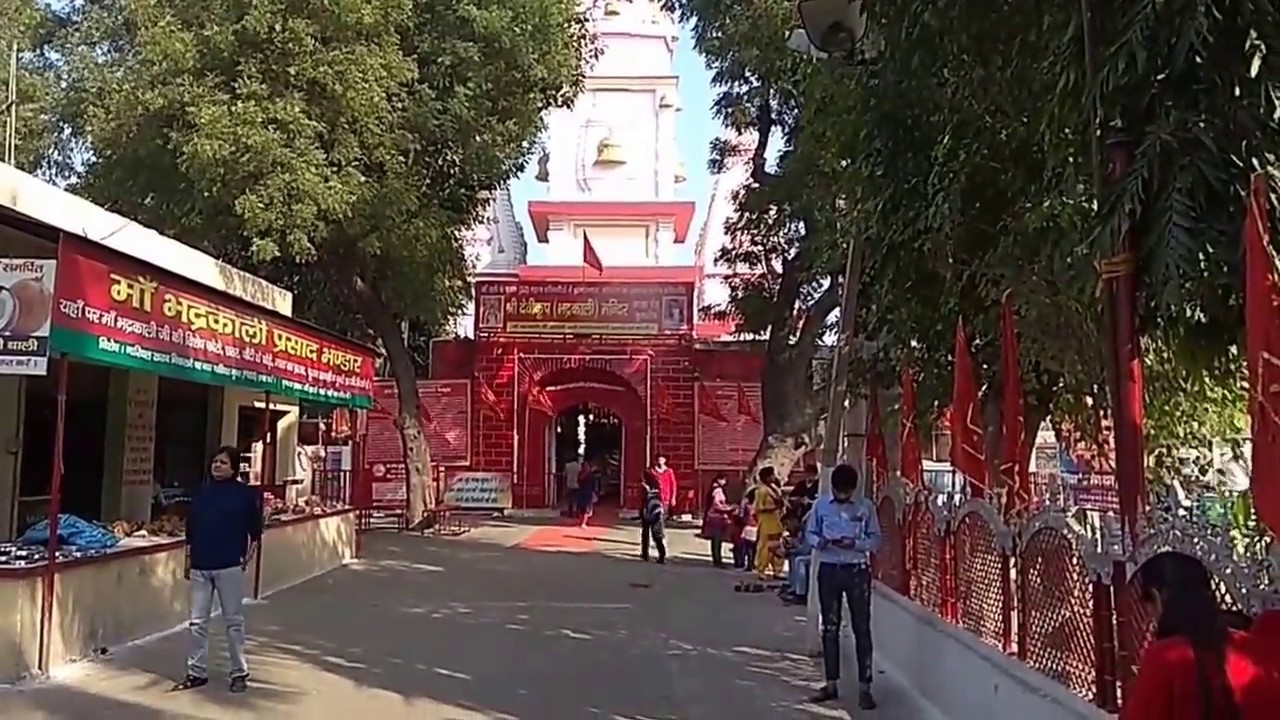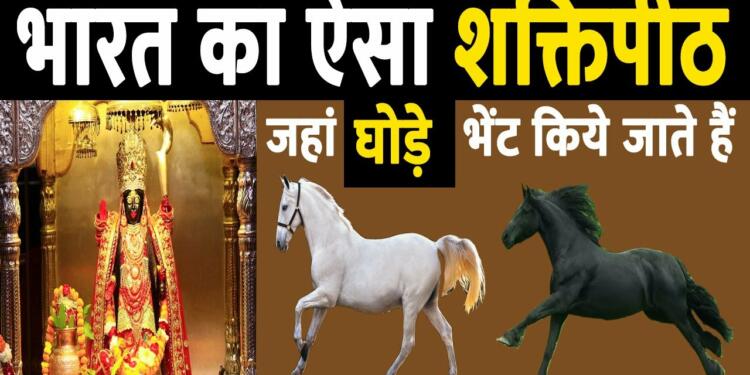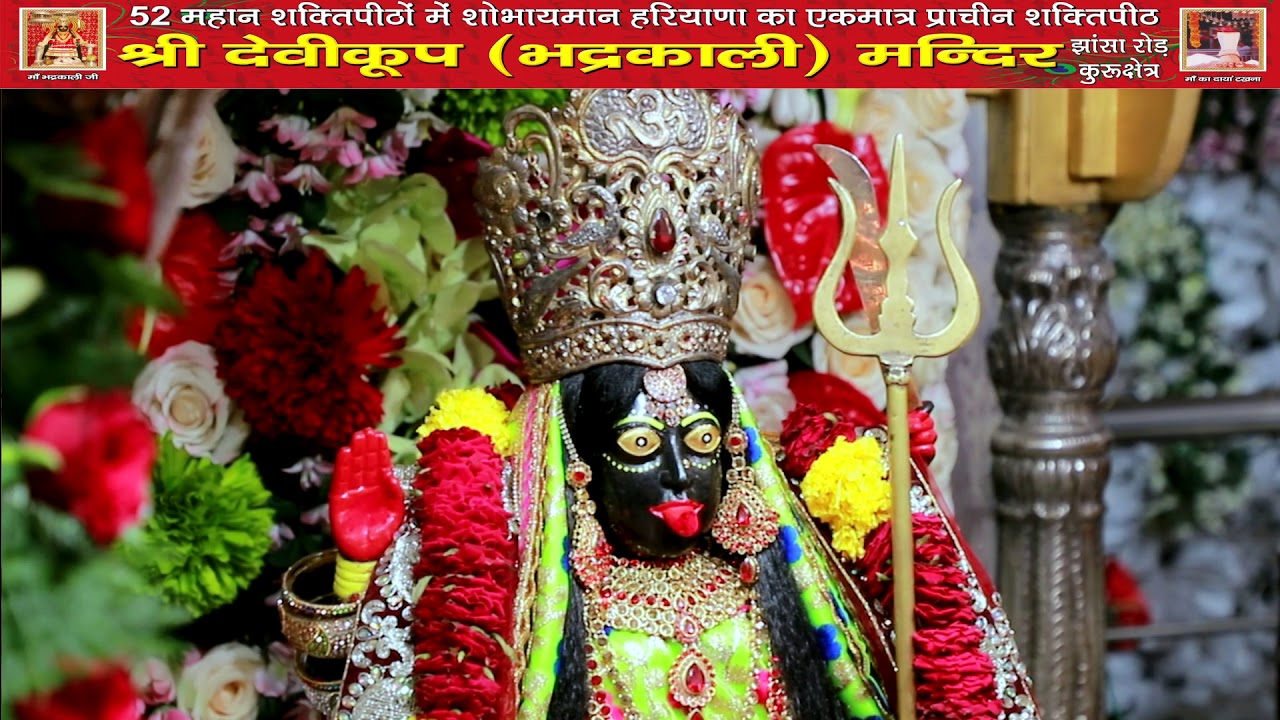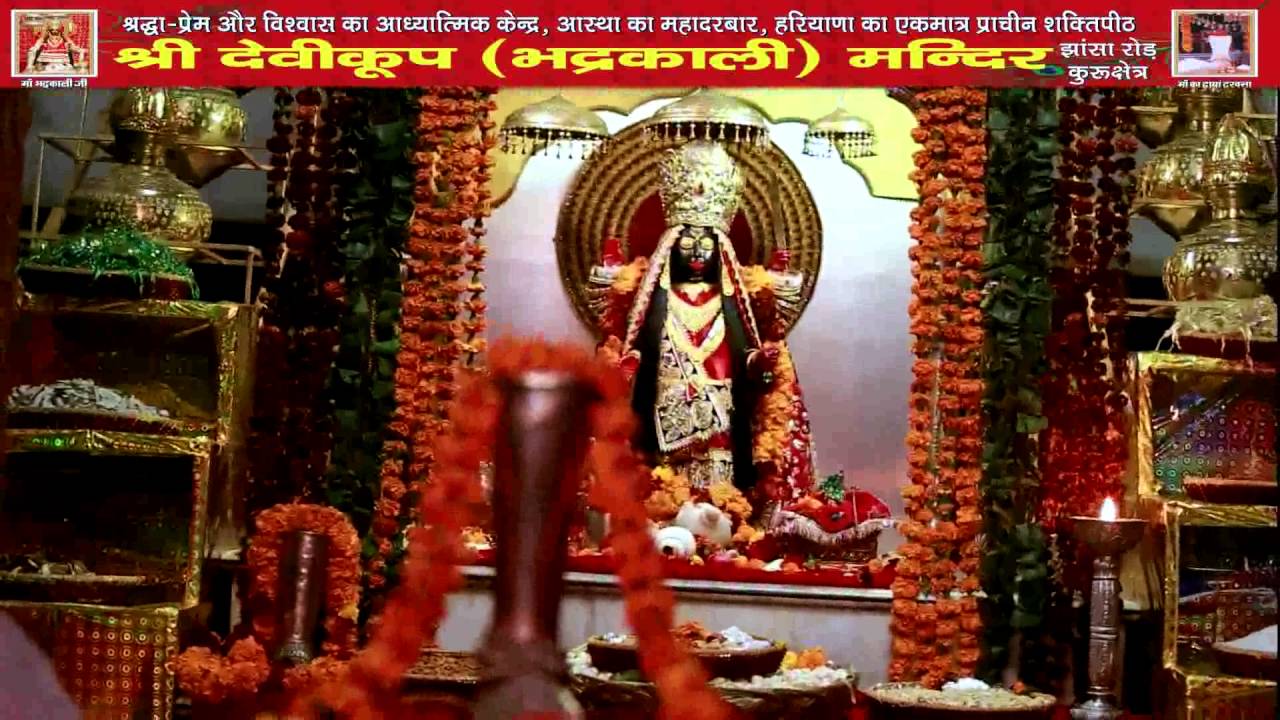Ghode wala Mandir Kurukshetra – Guide
Bhadrakali Temple is also known as Ghode wala Mandir, is situated at Jhansa Road, Thanesar, District Kurukshetra, Haryana. Bhadrakali Temple is also known as Sri Devikup Temple. The temple is dedicated to Goddess Kali who is one of the nine forms of the Goddess. This temple is one of the 51 Shaktipeeths.
Bhadrakali Shakti Peeth is also known as Savitri Peeth. A large idol of Goddess Kali is installed in the temple. On entering the temple, one sees a large lotus which has the imprint of the left foot of Goddess Sati. It is made of white marble.
History of this Temple
Goddess Sati gave her life by jumping into the fire of Havan organized by her father King Daksheshwar. When Lord Shiva was running around the earth carrying her body, Lord Vishnu divided the body into 51 parts using his Sudarshan Chakra. Out of those 51 parts, the right ankle of Sati fell inside a well here, hence Ghode wala Mandir Kurukshetra is known as Devi Koopa.
The Pandavas of the Mahabharata worshiped Goddess Durga here along with Sri Krishna and sought her blessings for victory in the war against the Kauravas. After winning the war, he donated horses to this temple and since then this tradition is prevalent here. It is also said that the shaving of Lord Krishna and Balarama took place here.
Kurukshetra Ghode wala Mandir Timings
Kurukshetra Ghode wala Mandir opens at 5:00 AM in the morning and close at 9:00 PM in the evening. Morning aarti is performed at 5:15 AM in the morning and evening aarti is performed at 7:15 PM.
| Saturday | 05:00 AM to 09:00 PM, Aarti: 05:15 AM and 07:15 PM |
| Sunday | 05:00 AM to 09:00 PM, Aarti: 05:15 AM and 07:15 PM |
| Monday | 05:00 AM to 09:00 PM, Aarti: 05:15 AM and 07:15 PM |
| Tuesday | 05:00 AM to 09:00 PM, Aarti: 05:15 AM and 07:15 PM |
| Wednesday | 05:00 AM to 09:00 PM, Aarti: 05:15 AM and 07:15 PM |
| Thursday | 05:00 AM to 09:00 PM, Aarti: 05:15 AM and 07:15 PM |
| Friday | 05:00 AM to 09:00 PM, Aarti: 05:15 AM and 07:15 PM |
Places to visit near this Temple
Brahmasarovar
One of the attractions of Kurukshetra is Brahmasarovar, a picturesque lake. Existence, history and myth surround each other at Brahmasarovar.
Jyotisar
Jyotisar is located on the Kurukshetra-Pihowa road at a distance of about 12 kilometers from the city of Kurukshetra. Jyotisar is the place where Lord Shri Krishna showed his divine form to Arjuna after preaching the Gita during the Mahabharata war.
Bhishma Kund
Bhishma Kund is situated in Narkatari. This kund is a large submerged place dedicated to the ancestors of Kauravas and Pandavas. This place of Kurukshetra is related to Mahabharata.
Sthaneshwar Mahadev Temple
The Sthaneshwar Mahadev Temple is dedicated to Lord Shiva. It is believed that the journey to Kurukshetra is considered incomplete without visiting the Sthaneshwar Mahadev Temple.
Sheikh Chilli Tomb
The tomb of Sheikh Chilli is a huge complex located near Kurukshetra. In which the Mughal Gardens, two tombs, a madrasa and many other structures are present.
Raja Harsha’s mound
Raja Harsha’s mound is about one kilometer long. The excavation of the mound dates back to the time of King Harshavardhana whose reign dates back to the 7th century.

Also Read: Kundalpur Jain Mandir, Timings, History, Travel Guide, and How to reach
How to reach Kurukshetra Ghode wala Mandir
By Air- The nearest airport from Kurukshetra Ghode wala Mandir is IGI international airport Delhi which is at a distance of 160 km from this temple. From here you can easily reach this temple by using local transport services or taxi.
By Train- The nearest railway station from Ghode wala Mandir is Kurukshetra railway station which is at a distance of 3 km from this temple. From here you can easily reach this temple by using local transport services or taxi.
By Road- Roads to this temple are well connected with the other cities of the country so you can easily reach this temple by using local transport services or taxi from any part of the country.
Subscribe our TFI Dharma YouTube channel to watch Devotional videos because we are here to serve Sanatana Dhrama: TFIDHARMA























